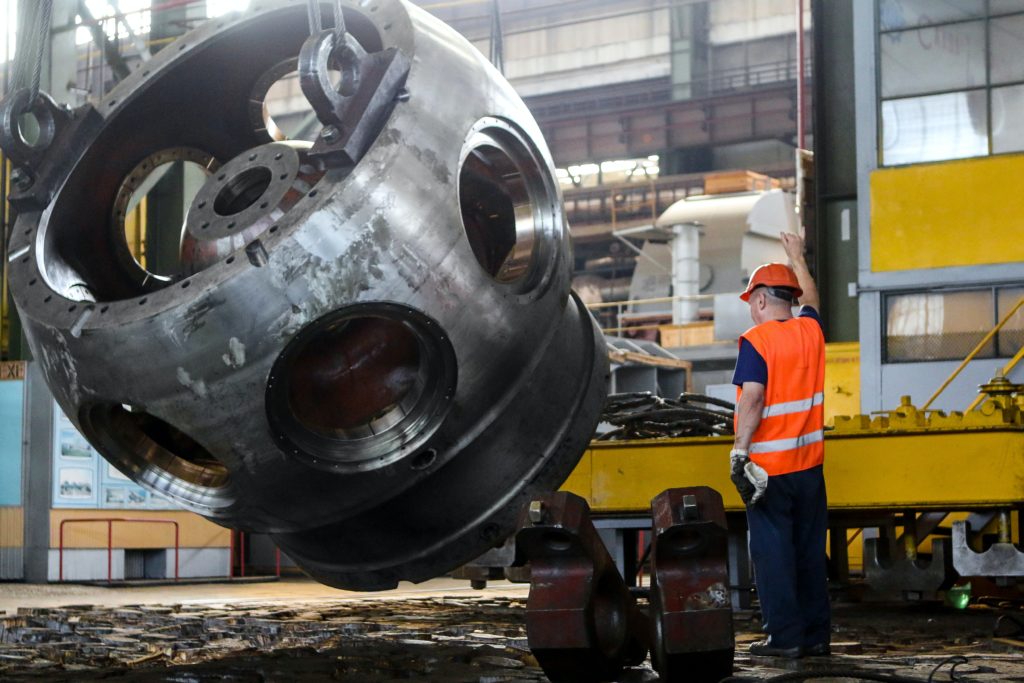Caught between record-low unemployment and record-high inflation, it’s no secret that entrepreneurs are facing unprecedented challenges. It’s rare to enter a retail store or restaurant without seeing a help wanted sign in the window, or to plan a budget without being surprised by the rising cost of gasoline, food or utilities. More than anyone else, business owners understand the need to control costs and find a competitive advantage to survive tough times.
That’s why it’s so surprising that one of the best solutions to these concerns — second-chance hiring — is also one of the least known. Some West Michigan businesses like Cascade Engineering and Abcor Industries have already figured this out and are enjoying the benefits of hiring people who have a criminal record. But many others are still stuck in old habits, such as routinely rejecting any job applicant who’s had any run-in with the justice system.
People who have a criminal record comprise a surprisingly large percentage of American adults. According to FBI estimates, as many as 70 million adults have a criminal record — about as many people who have a bachelor’s degree in this country. When arrest records are included, that accounts for 1 in 3 adults in the U.S.
When employers make a decision to routinely discard people with a criminal record from their pool of potential hires, they are discarding a large portion of the population — including some individuals who may be a great fit for the job opening. Yet this happens on a regular basis. According to a 2012 survey by the human resources organization SHRM, 86 percent of businesses use background checks as part of the hiring process, and 31 percent of businesses said that even an arrest warrant that didn’t lead to a conviction would influence a hiring decision — even though they were never found guilty by the legal system.
People who have a conviction on their record can make great employees, too, when given a chance. Many formerly incarcerated people have the opportunity to obtain prized skills during their time in prison, including welding, building trades and auto repair. The Vocational Village program, operated by the Michigan Department of Corrections, trains people in these sought-after trades in preparation for their release from prison. Tax credits may be available to employers who hire people who have been through these programs.
Research shows that hiring these “second chance” employees can bring stability to businesses, too. A report from the U.S. Chamber of Commerce earlier this year stated that 85 percent of human resources leaders have found that second-chance hires perform as well as — or better — than other employees. What’s more, research finds that second-chance employees are much less likely to quit their jobs than other workers, saving businesses both time and money. Each new hire costs companies about $4,000, the report found. And finding promising employees in the current environment is a challenge many hiring managers know all too well.
The stigma against hiring people with a criminal record has left this large pool of potential employees untapped for far too long. New policies such as “ban the box” ordinances that disallow the routine rejection of employment on the basis of having a criminal record, or the new Clean Slate laws that make criminal record expungements easier to obtain, are making it easier for these folks to find the good jobs they are ready and yearning to take.
A growing number of West Michigan businesses have joined Cascade Engineering and Abcor Industries in giving second-chance hires an opportunity. There are still thousands of people in West Michigan still looking for good jobs to match their vocational skills. Now is the time to find out how second-chance hiring can benefit your business as much as it benefits the person you hire.
Diane Maher, President and COO of DP Fox Ventures, LCC has recently voiced her support for second chance hiring. Read her blog here.
By: Barbara Wieland, Senior Communications Specialist, Safe & Just Michigan


